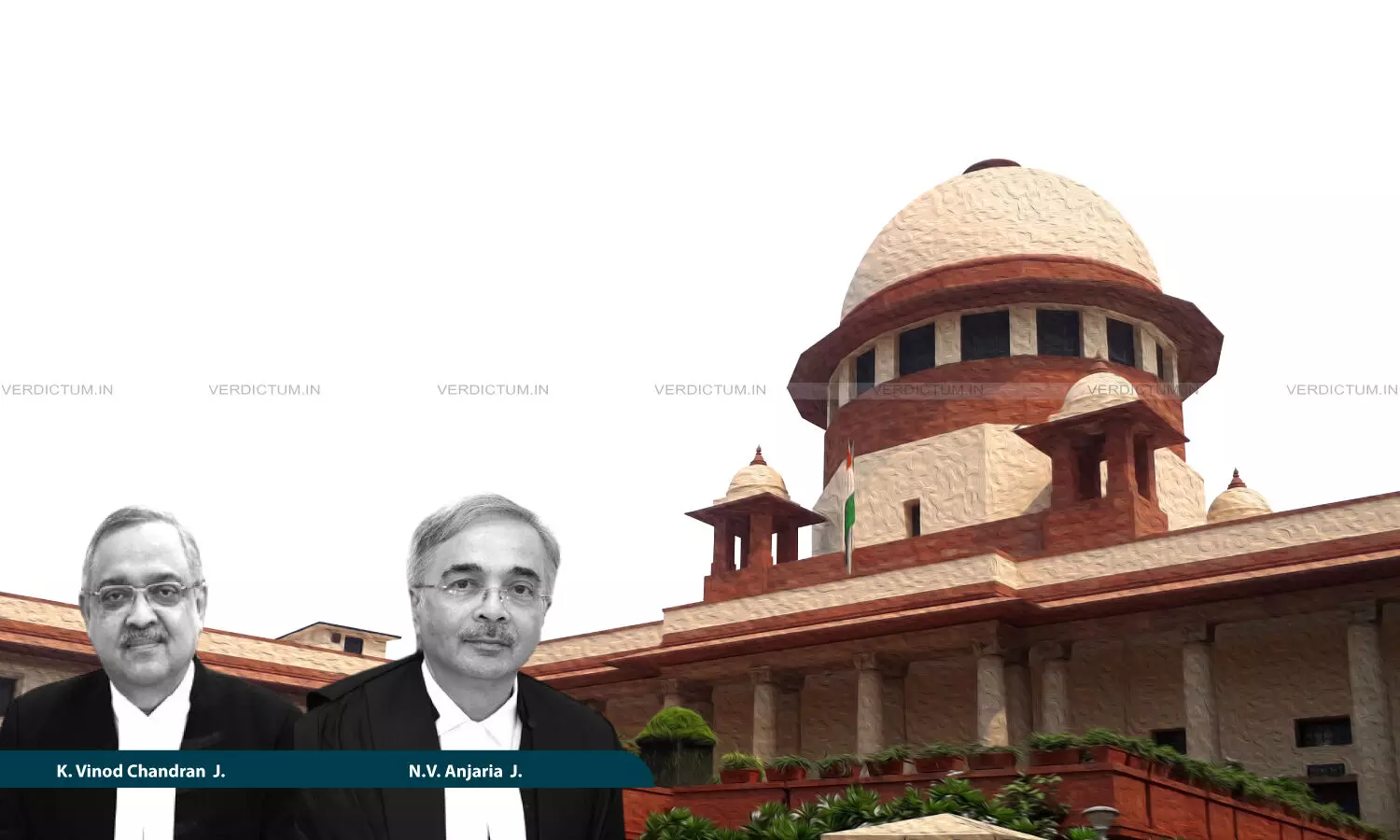
Justice K. Vinod Chandran, Justice NV Anjaria, Supreme Court
Witnesses Were Related & Residing In Same Neighborhood: Supreme Court Acquits Woman In 26-Yr-Old Murder Case
 |
|The appellant, along with her husband, was convicted of an offence under Section 302 of the Indian Penal Code, 1860 and sentenced to life imprisonment. The Supreme Court was considering the woman’s appeal.
The Supreme Court has granted acquittal to a woman in a 1999 murder case after noting that the witnesses were related and residing in the same neighborhood. The Apex Court also took note of the admitted dispute on partition in the family of the deceased and the lack of clarity on the exact time of death.
The appellant, along with her husband, was convicted for an offence under Section 302 of the Indian Penal Code, 1860 and sentenced to life imprisonment. The Apex Court was considering the woman’s appeal.
The Division Bench of Justice K. Vinod Chandran and Justice N. V. Anjaria said, “Admittedly all these witnesses are related and are residing in the same neighbourhood and their presence cannot at all be doubted. However, the fact that the body was found in a different place from the scene of occurrence; at the house of the deceased, the unexplained injuries on the body of the father and mother of the deceased, the admitted dispute on partition in the family of the deceased and the lack of clarity on the exact time of death creates a reasonable doubt.”
AOR Sunita Sharma represented the Appellant while AOR Sarad Kumar Singhania represented the Respondent.
Factual Background
It was alleged that the couple beat the deceased with sticks in the premises of a temple, and the victim succumbed to the injuries sustained. The motive was said to be an altercation that occurred in the afternoon when the appellant attempted to graze her cattle in the field of the deceased. The objection of the deceased regarding the land not having been harvested was ignored, upon which the deceased pushed the appellant, who fell down and then took a stick from her son and beat the deceased twice on his leg. The appellant’s son and mother-in-law took her away from the scene of occurrence upon which the appellant warned the deceased that she would come back with her husband. The threat levelled was then executed, which led to the death of the victim.
Reasoning
The Bench noted that the case of prosecution that the death was homicidal was established by the evidence of the Doctor. It was further noticed that the statement of the deceased about the perpetrators had the force of a dying declaration. However, this was not reckoned either by the trial court or by the High Court; presumably due to the improbability of such a statement having been made.
The medical evidence was categorical insofar as the time of death was concerned, which was stated to be sometime between 10 pm to 12 am in the night while the deposition of the deceased’s father indicated that the time of the death was before 9 at night. “The trial court and the High Court had relied upon a number of decisions which declared that merely because the witnesses were related, that would not make them interested witness. We fully agree with the proposition for general application”, it said.
The Bench noted that the witnesses were related, residing in the same neighborhood and their presence could not be doubted. The eye-witness testimony of a frontal assault was only that of the father of the deceased, who did not have a very good relationship with the deceased, his son. The other eyewitnesses converged on the scene of occurrence, hearing cries and spoke of having seen the accused fleeing from the site with sticks in their hands.
None other than the deceased’s father witnessed the alleged attack on the deceased victim. “The dying declaration was not even noticed by the trial court or by the High Court and we also find it to be improbable”, the Bench said while giving the appellant the benefit of doubt. Thus, the Bench set aside the order of conviction entered into by the trial court and confirmed by the High Court.
Cause Title: Shyam Kali Dubey v. State of Madhya Pradesh (Neutral Citation: 2025 INSC 947)
Appearance
Appellant: AOR Sunita Sharma, Advocates Aditya Kumar, Hari Om Singh Rajaur, Anurag Agarwal
Respondent: AOR Sarad Kumar Singhania, Advocate Rashmi Singhania